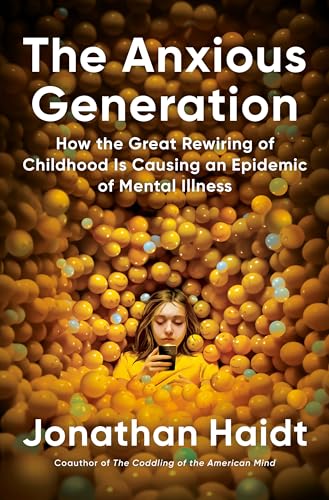Among the former president's year-end shout-outs are novels that made the rounds on longlists for major awards, such as those by Martin MacInnes and Ayşegül Savaş and the Booker-winning Samantha Harvey, along with deep cuts from Dinaw Mengestu and Adam Moss. There's also a book by Jonathan Haidt that was debated on many a podcast. Here's what PW had to say about Obama's faves.
The Anthropologists

The Anxious Generation: How the Great Rewiring of Childhood Is Causing an Epidemic of Mental Illness
Last spring, Haidt's treatise on the impact of cell phones on children reached #1 on PW's bestseller list. As we reported in our weekly analysis of the list, Haidt, coauthor of The Coddling of the American Mind, argues in the book that a “phone-based childhood" has become "the major cause of the international epidemic of adolescent mental illness.”








